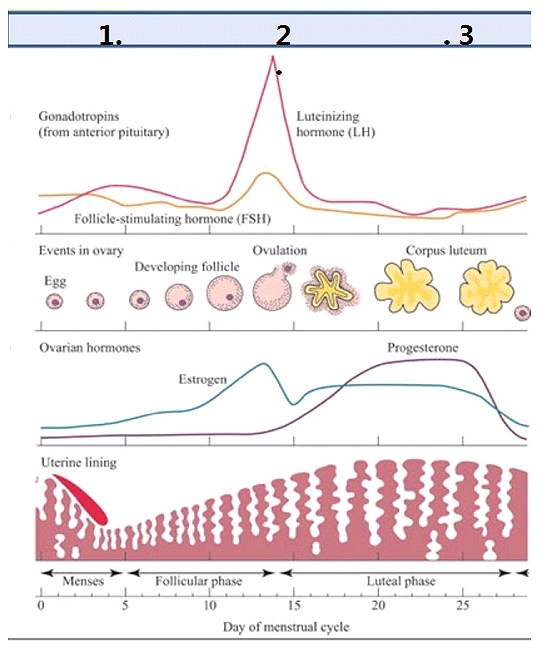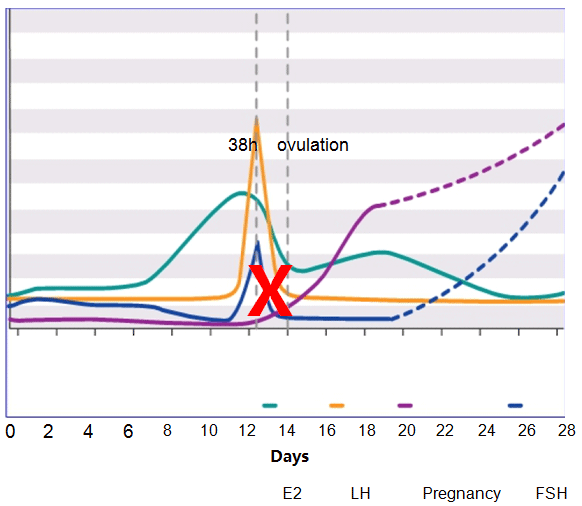Courses
Combined hormonal contraception
Menstrual cycle regulation by hormonal pathways1,2
- Hypothalamus releases GnRH, stimulating the pituitary
- FSH slowly increases causing LH surge that stimulates ovulation
- Estrogen and progesterone provide negative feedback to the hypothalamus and pituitary, turning off GnRH, LH and FSH release
GnRH = gonadotropin releasing hormone ; FSH = follicle-stimulating hormone; LH = luteinizing hormone Used with permission from The Journal of Reproduction Medicine.
1Speroff L and Fritz MA. Regulation of the Menstrual Cycle. In: Clinical Gynecologic Endocrinology and Infertility; Philadelphia: Lippincott Williams & Wilkins, 2005
2Griesinger G et al. J Reprod Med. 2011;56:279-300
Combined oral contraceptive pills: mechanisms of action
Progestin: imitates progesterone increase in pregnancy
- Inhibits ovulation by suppressing FSH and LH
- Thickens the cervical mucus thereby preventing the migration of sperm into the uterus
- Alters the endometrium, making it unsuitable for implantation even if the ovum is fertilized
Estrogen
Helps to maintain the stability of the endometrium and thereby decreases the risk of break-through bleedings
Speroff L. Oral contraception. In: Clinical Gynecologic Endocrinology and Infertility; Philadelphia:Lippincott Williams & Wilkins, 2005:861-942.
Thus Progesterone provides the Contraceptive Effect And Estrogen regulates the Bleeding Pattern
Disclaimer: The information contained in this website is for general information purposes only. The information is provided by MMA Online Contraceptive Course and while we endeavour to keep the information up to date and correct, we make no representations or warranties of any kind, express or implied, about the completeness, accuracy, reliability, suitability or availability with respect to the website or the information, products, services, or related graphics contained on the website for any purpose. Any reliance you place on such information is therefore strictly at your own risk.

